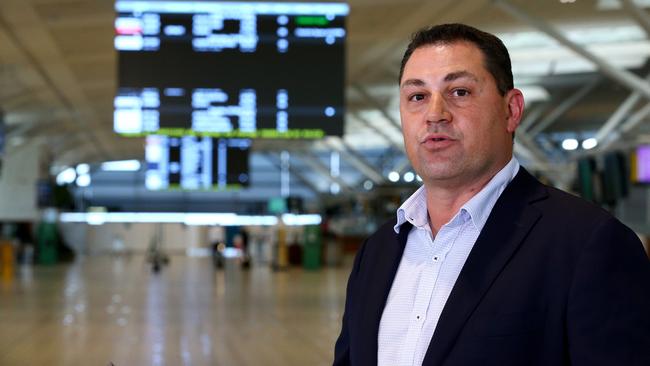Unwieldy Queensland entry rules ‘will deter holiday-makers’
Queensland risks being left out of any tourism recovery by cumbersome entry requirements for interstate and international travellers.

Cumbersome conditions on interstate and international travel to Queensland will delay the tourism industry’s recovery and deter the return of overseas airlines, Brisbane Airport has warned.
While the Tourism and Transport Forum and Queensland Tourism Industry Council praised the state’s commitment to open up to visitors from Covid hotspots interstate, airport aviation executive Jim Parashos questioned whether the bar had been set too high.
NSW, Victoria and the ACT remain hotspots under the Queensland Health definition: “any place with lots of Covid-19 cases”. The federal government removed NSW and the ACT from its hotspots list on Monday and was to do the same for Victoria on Thursday because of high vaccination rates.
As long as the states are hotspots in Queensland’s eyes, arrivals will need a negative Covid test in the 72 hours before travel, even after the 80 per cent vaccination rate is reached in Queensland.
Mr Parashos said at about $150 a test, or more than the cost of many domestic airfares, the condition of entry would prove unpalatable to many holiday-makers and prospective business travellers. “The cost plus the inconvenience of having the test will dampen the appetite of tourists to come to Queensland, particularly when you’re talking about families and young children,” he said.
“It’s great to have a plan but for a state that’s so heavily reliant on tourism and particularly interstate tourism, we don’t think it provides enough certainty for people to book and visit.”
As confounding, he said, was a delay to quarantine-free international travel until Queensland’s vaccination rate reached 90 per cent of the eligible population, unlikely for several months.
Mr Parashos said it didn’t make a lot of sense that fully vaccinated people from interstate hotspots could enter Queensland with a negative Covid test from December 17, but overseas arrivals who met the same criteria would have to home quarantine for 14 days. “The question is at 80 per cent (vaccination), why is it any different for someone to come up from Melbourne, as opposed to someone coming in from LA or Singapore?” he said.
A Queensland Health spokeswoman said the different treatment for fully vaccinated interstate and international arrivals was warranted until the state’s vaccination rate reached 90 per cent. “While both interstate and overseas hotspots are a concern, the risk profile for overseas hotspots is greater due to several factors, including quality of vaccinations, different variants circulating overseas, and uncertainty in contact tracing processes used in other countries,” she said.
Deputy Premier Steven Miles said the state was taking a sensible, cautious approach to opening up.
Additional reporting: Lydia Lynch




To join the conversation, please log in. Don't have an account? Register
Join the conversation, you are commenting as Logout